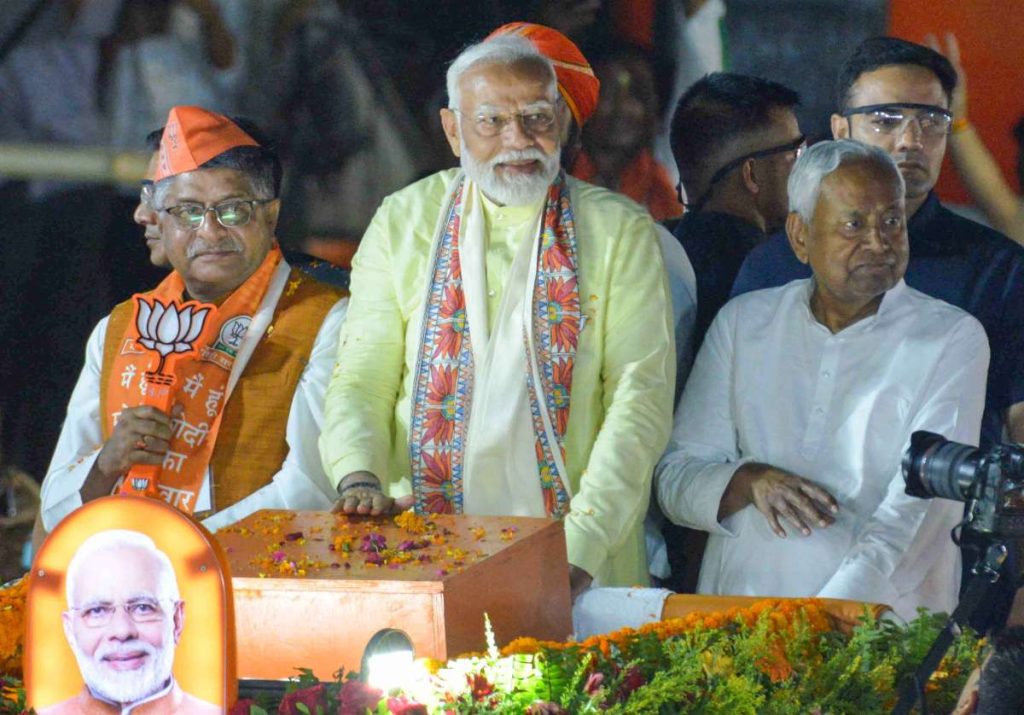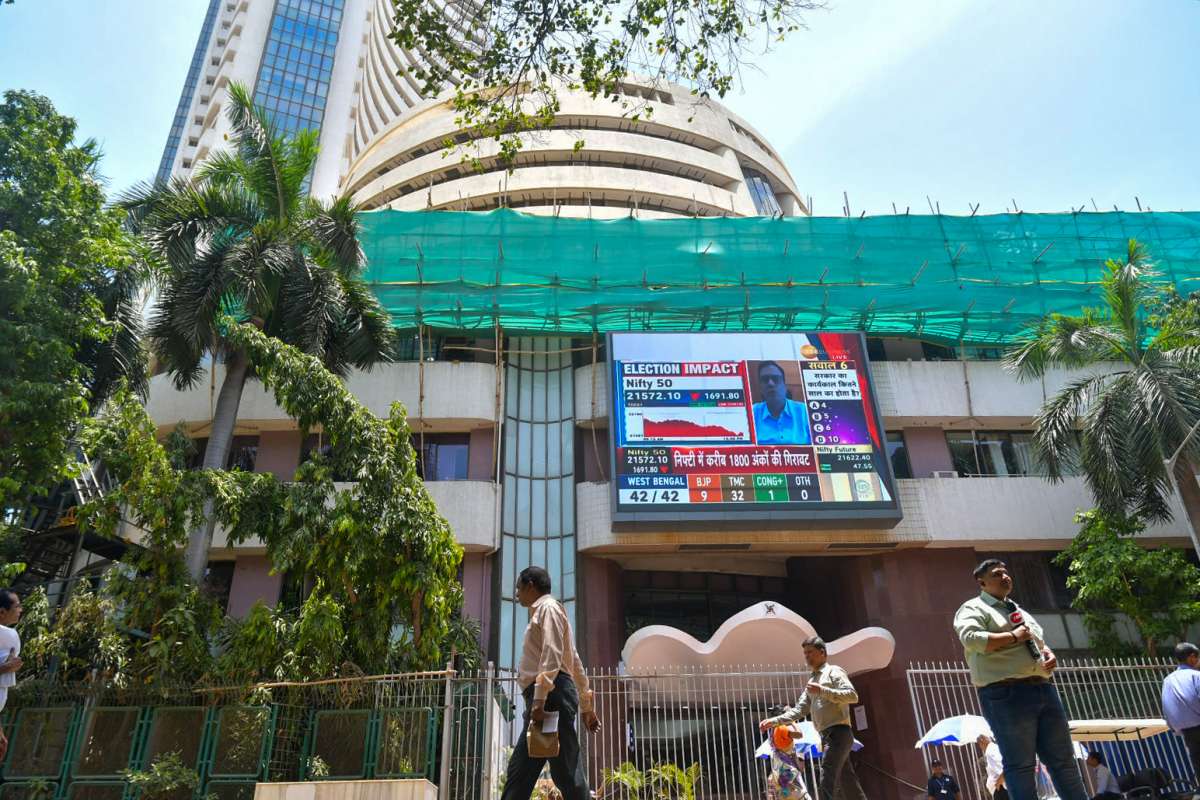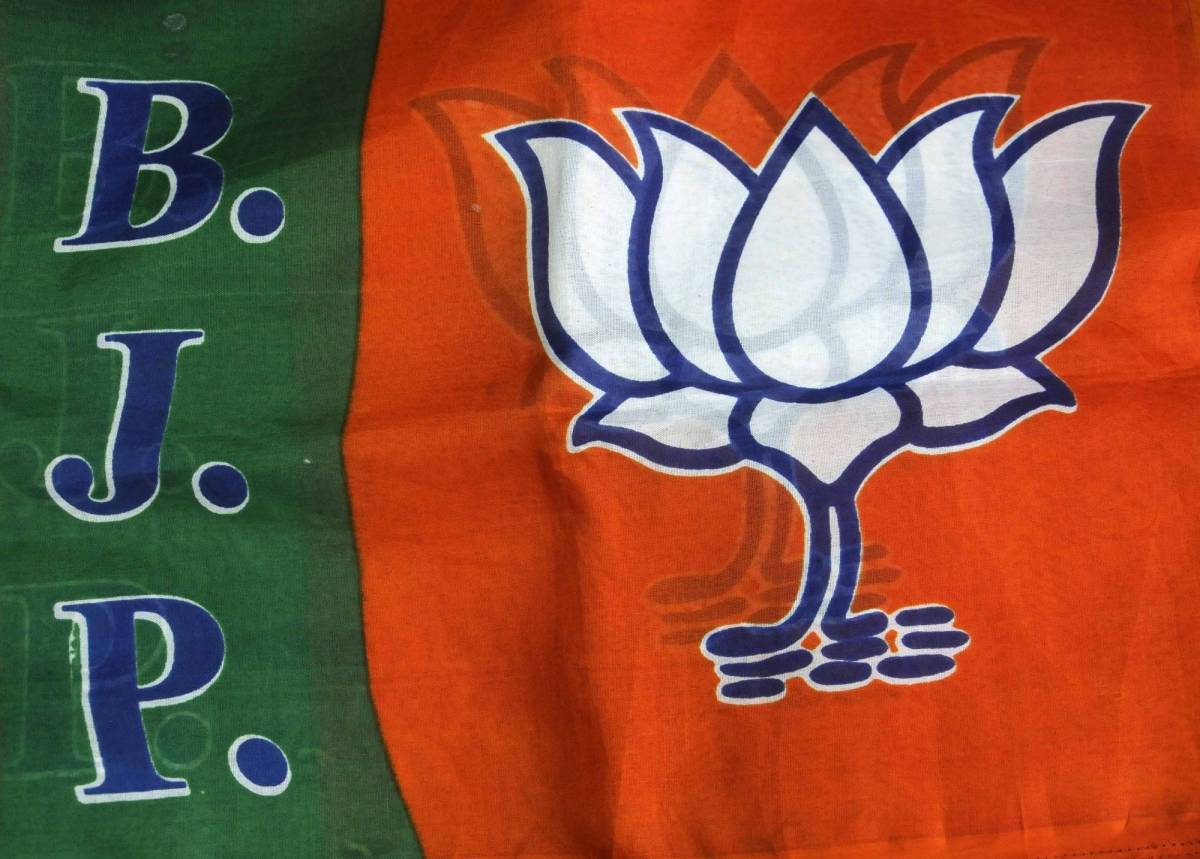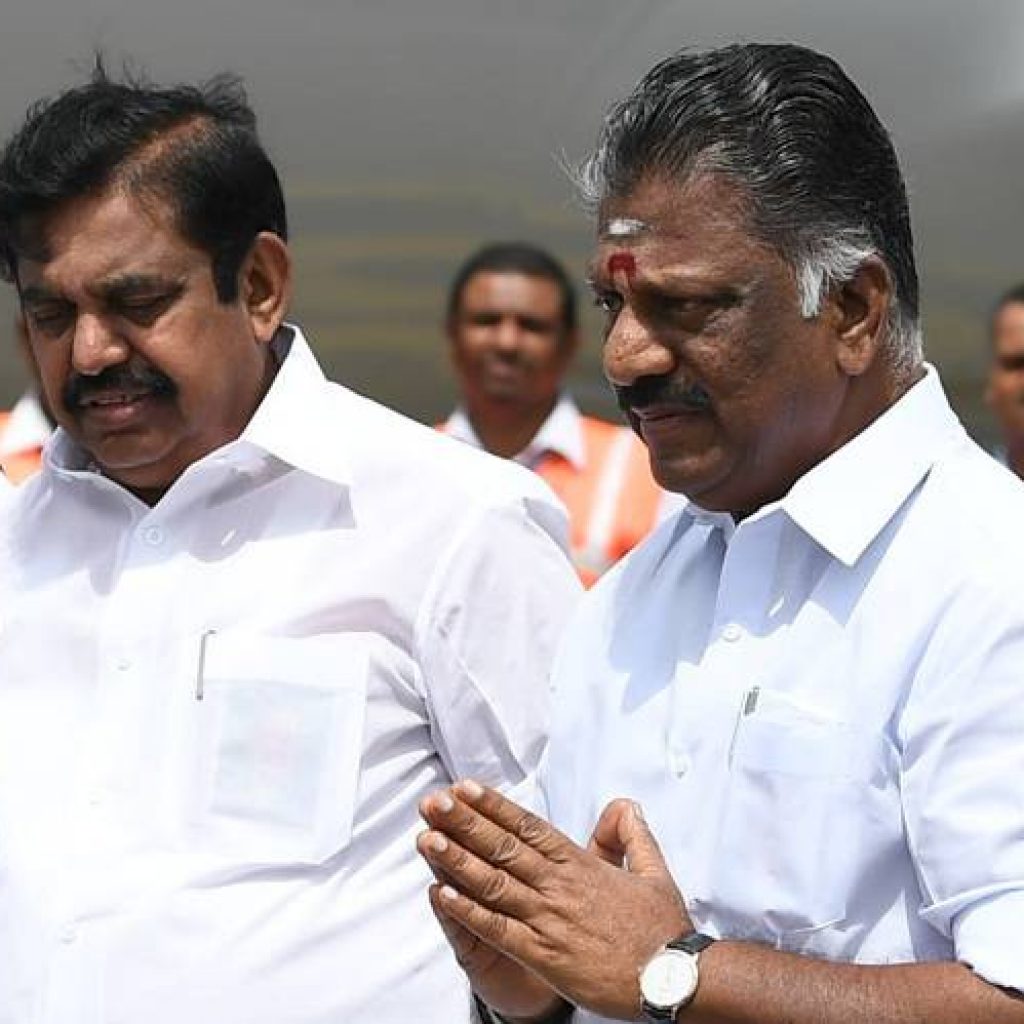The idea of a coalition government lead by BJP at the centre has led to widespread market anxiety and a sharp decline in stock indices…reports Asian Lite News
Indian stock indices witnessed a bloodbath on the day the Lok Sabha results are being announced, where incumbent BJP performed below par and seems it may fall short of exit poll predictions and the majority mark on its own.
The BJP-led National Democratic Alliance is leading in nearly 300 seats while the INDIA alliance is leading in 229 seats, as per data from the Election Commission of India.
The idea of a coalition government lead by BJP at the centre has led to widespread market anxiety and a sharp decline in stock indices. The BJP, which has been the dominant force in Indian politics for the past decade, is seen as a pro-Industry party whose policies have generally favoured economic growth and market stability. The failure to secure a clear majority to BJP of its own raises concerns about the formation of a stable government and the continuation of economic reforms.
At the closing bell, Sensex closed at 72,079.05 points, down 4,389.73 points or 5.74 per cent, while Nifty closed at 21,884.50 points, down 1,379.40 points or 5.93 per cent. All Nifty sectoral indices, barring Nifty FMCG, were deep in the red today. Nifty metal, Nifty bank, Nifty financial services, Nifty PSU bank, Nifty private bank, Nifty realty, Nifty oil and gas, slumped the most, NSE data showed.
“The steep fall is due to the results so far falling short of the exit polls which the market had discounted yesterday. If BJP doesn’t get a majority on its own there will be disappointment and this is getting reflected in the market. Also it is possible that Modi 3.O may not be as reform-oriented as the market expected and may turn more welfare- oriented,” said V K Vijayakumar, Chief Investment Strategist, Geojit Financial Services.
At one point during the afternoon, Indian equity indices plummeted over 8 per cent on Tuesday, as poll trends indicated a closer than anticipated fight for the incumbent Narendra Modi-led NDA government.
Sensex logged it worst session in over four years, it witnessed back during Covid days.
“Markets rallied 3-3.5 per cent on expectation of a Modi led NDA win on Monday. PSU (especially banks) led the rally. Today polls were not in line with exit poll outcome. Markets move more than 4-5 per cent down today,” said Jaykrishna Gandhi, Head – Business Development, Institutional Equities, Emkay Global Financial Services.
“We expect 7-10 per cent downside for broader markets from current levels. We recommend positioning to move from alpha stocks to defensives – add FMCG, IT, Pharma vs short on ABB, Siemens, Cummins, Coal India, NTPC, PFC, REC, PNB, Canara bank,” Gandhi suggested.

The Rupee closed weaker against the US dollar on Tuesday, depreciating by 38 paise to close at 83.53. It closed at 83.15 on Monday. The Rupee had been largely steady for the past year, largely due to RBI’s intervention.
“This uncertainty triggered a panic sell-off across various asset classes, impacting economic growth. The Dollar-Rupee exchange rate may continue to rise, potentially reaching 83.90, with 83.40 serving as the immediate support level,” said Jateen Trivedi, VP Research Analyst – Commodity and Currency, LKP Securities.
Manish Chowdhury, Head of Research, StoxBox, asserted that markets have reacted sharply to the initial trends of the NDA leading on around 290 seats, way less than as projected.
“With the NDA still looking to form a government, though with the important support of coalition partners, markets look jittery about the prospects of strong decision making. Markets believe that the reformistic approach, which was a hallmark of the previous two terms, might take a backseat in the third term. However, our sense is that it is still early to jump to conclusions and should ideally wait for a clearer picture,” said Chowdhury.
Shrikant Chouhan, Head Equity Research, Kotak Securities, noted that the current market texture is extremely volatile and uncertain; hence, it is advisable that traders should remain cautious for the next few trading sessions.
On Monday, Indian benchmark indices closed at record highs, driven by fresh buying from investors after exit polls indicated a comfortable majority for the NDA government.
The Nifty 50 index gained 733.20 points, closing at 23,263.90, while the BSE Sensex surged 2507.47 points to close at 76,468.78. (ANI)
ALSO READ: UST on Buying Spree




